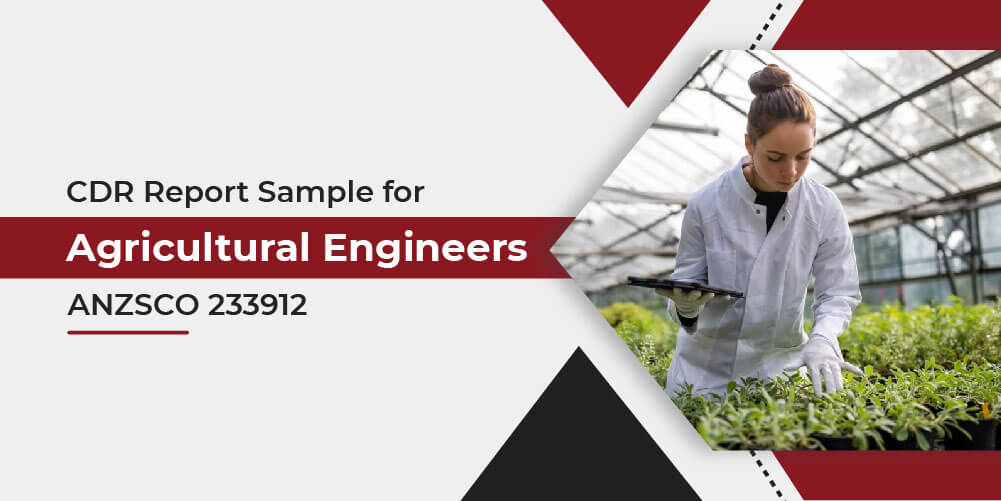For getting employment in Agricultural Engineering Industry, a minimum qualification of a bachelor’s degree in engineering science is required, which is a pathway of four years. For agricultural engineers, there are jobs offered by the farming industry, environmental and government agencies, as well as non-profit organizations.
The chance of getting employed in Australia is higher for those who have enough knowledge and skills in agricultural machinery, soil science, fertilization, irrigation systems, and crop nutrients along with some knowledge on mechanical and civil disciplines.
CDR sample for Agricultural Engineers includes all the required reports such as Curriculum Vitae (CV), Continuing Professional Development (CPD), three Career Episodes (CE), and Summary Statement. The content of the CDR Report Samples is given below:
Project Name: Assessment of Different Rice Milling Machines
In the first Career Episode, the author presents a project entitled “Assessment of Different Rice Milling Machines” where she worked as an Agricultural Engineer for two years. Her responsibilities in this project were:
Project Name: Adaptation of Dehusking Machines
In the second Career Episode, the author elaborates the project “Adaptation of Dehusking Machines” which she carried out as an Agricultural Engineer of Agricultural Machinery Centre. During this project, her major responsibilities were:
Project Name: Preparing Strategies of Farm Mechanization Project
In this Career Episode, the author explains her work experience in a project entitled “Preparing Strategies of Farm Mechanization Project” which she executed as Deputy Executive Engineer at Agriculture Machinery Centre (ACM). She performed the following duties:


